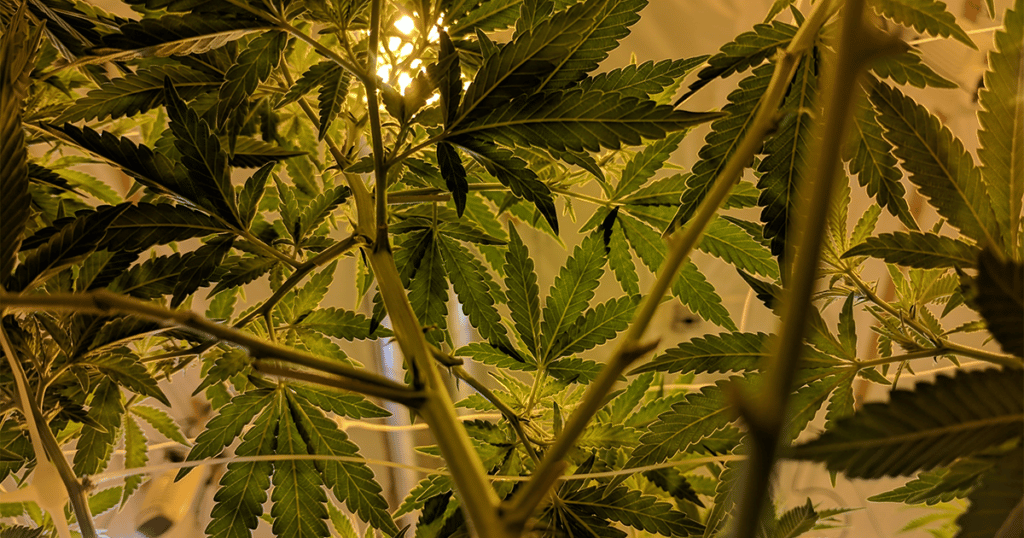The midterm elections are quickly approaching, and many are wondering what the results will mean for the future of cannabis reform in America.
Historically, this is the time of year when politicians scramble to make moves to get votes. The balance of Congress will inevitably change, and a different party will have more power than it did before.
If Republicans take control of at least one of the two chambers of Congress – as is expected to happen in the U.S. House of Representatives – it could dramatically affect future cannabis legislation.
The U.S. vs Cannabis
It’s no secret that Republicans have been historically anti-marijuana and anti-reform. Senate Minority leader Mitch McConnell (R), for example, is notable for his opposition to cannabis banking reform — which would allow banks to work with state-legal marijuana businesses without fear of prosecution by the federal government — calling it a “poison pill” in a House vote on a large-scale bill in February 2022.
While Democrats have historically been more friendly to cannabis reform than Republicans, they currently hold a precarious majority in government and this is likely to change come 2024 when redistricting changes take effect. So while we may see some progress on cannabis law in the coming years, now is our best chance to ensure we’re protecting patients, consumers, and businesses from federal interference.
However, not all members of the GOP are anti-cannabis. In fact, many are surprisingly advocates for marijuana reform! Republican Senator Steve Daines (R-MT), for example, is a staunch advocate of marijuana banking reform, calling it a matter of public health. Republicans in Georgia and Missouri are also making notably progressive moves regarding drug decriminalization, recently allowing veterans the right to try psychedelic therapy.

The Generational Divide
We’ve seen a lot of change in the politics of cannabis over the last few years. It used to be a partisan issue, with Republicans against legalization and Democrats in favor of it. But now we’re seeing that younger members of both parties tend to be more pro-cannabis, or at least are not anti-cannabis.
In South Carolina, for example, Republican Nancy Mace sponsored a GOP-led cannabis bill that would allow people to use medical marijuana with a doctor’s recommendation. She’s just one example of how Republicans are changing their stance on marijuana. However, not everyone is. Members of the Silent Generation (born between 1928 and 1945) continue to be the least supportive of legalization, according to Pew Research. Surprisingly, 81% of Boomers support legalization as well, according to Pew. About two-thirds (69%) of those ages 18 to 29 say it should be legal for both types of use, compared with 48% of those ages 65 and older. Most adults 65 and over, however, do favor legalization and want to see it enacted.
If over two-thirds of Americans want cannabis to be legalized for adult use then what’s the hold-up?
Will Cannabis Ever Be Fully Legal?
The hold-up is a little bit of everything.
First, let’s talk about the elephant in the room. The Republican Party is still very much against cannabis legalization. They’ve been using it as a campaign point for as long as we can remember, and it’s easy to see why: 50% of their supporters don’t support legalization. But what they don’t realize is that if they don’t legalize cannabis, they’re going to lose steam with the younger generation of voters who are already sick of hearing about this issue (and who will be voting in 2022 and 2024).
The industry is also growing quickly — by 2021, sales from adult-use and medical marijuana products hit $25 billion. That’s quite a market! And it would be great for America if we could capitalize on it as a nation instead of just letting certain states reap all the benefits while others are left behind.
Legal states have had to deal with several issues that could be solved by legalization on a federal level. For one, the legal states have been struggling to handle the quality control of their products and how that relates to public health. They also have trouble finding ways to go about getting their products tested in an affordable manner, which can lead to less-than-safe products ending up on shelves.
Most Americans, regardless of political affiliation, want it legalized — it’s crazy that we’re still arguing over this issue in 2022! President Joe Biden’s campaign was largely based on his promise to allocate marijuana for research purposes, which would allow scientists to study cannabis and its effects, paving the way to a more thorough understanding of cannabis. However, nothing has come to fruition yet.

With all the money and effort poured into cannabis legalization, why is it still illegal?
As a country, we seem to be at a standstill with the topic of cannabis. In fact, it feels like we’ve been at this point for years. But really, it’s just been the last few years that have been so challenging.
It’s clear that adult-use legalization has become a huge issue in this country and will only continue to grow as more states join the ranks of legal states. Furthermore, there are plenty of ways in which our current system could be improved by federal legalization.
The fact remains: people want to use cannabis — and they’re going to use it regardless of whether or not it’s legal in their state. It’s time for Congress to step up and make some changes so that businesses can thrive (and so we can get our taxes from them), citizens can feel safer about their personal freedoms, and everyone gets some peace of mind when it comes to their health and well-being.
Enjoyed that first hit? Come chill with us every week at the Friday Sesh for a freshly packed bowl of the week’s best cannabis news!





















